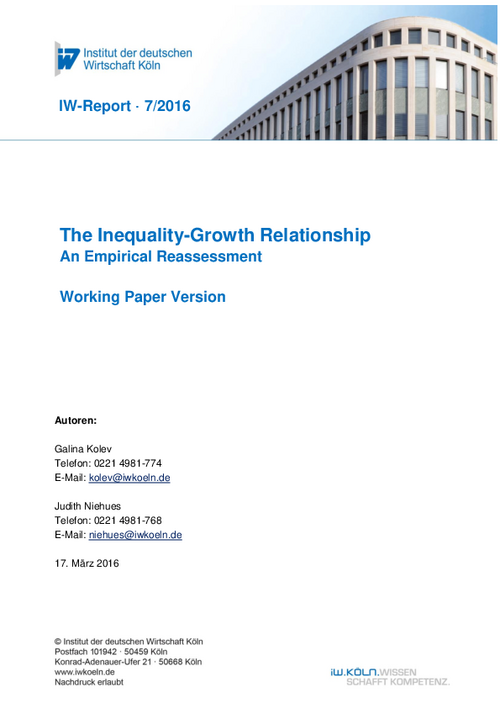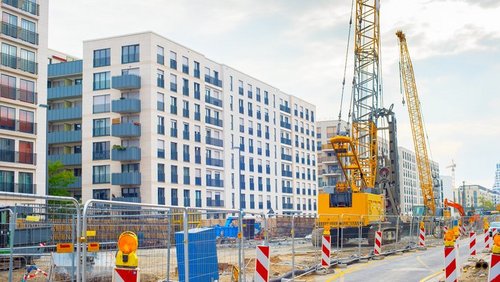An Empirical Reassessment

The Inequality-Growth Relationship
IW-Report

An Empirical Reassessment
Recently, some influential empirical studies found evidence in favour of a negative relationship between income inequality and economic growth, implying the conclusion that inequality reducing policies will foster economic growth. The studies have in common that they all rely on the System GMM dynamic panel estimator. We argue that this estimator is most likely to suffer from a severe weak instrument problem in the inequality-growth setting because lagged differences of inequality have practically no explanatory power for current inequality levels. Thus, it is biased in the direction of OLS and fails to control for country heterogeneity. Using traditional Fixed Effects models or Difference GMM estimators yields positive coefficients on the inequality variable. Furthermore, we find evidence for a nonlinear relationship between inequality and growth when considering a sample of developed and developing economies. Thus, the effect of net income inequality on growth seems to be negative only for less-developed countries and for countries with high levels of inequality, and non-significant or rather positive otherwise.

Galina Kolev / Judith Niehues: The Inequality-Growth Relationship – An Empirical Reassessment
IW-Report

More on the topic

Effects of Public Investment on Companies in Germany – Results of the IW Business Survey
Weak public investment activity in Germany has contributed to the low productivity growth of the last decades. Even maintaining the contribution to growth of state-owned capital stock at the already low level of the 1990s would have required an additional ...
IW
Reform of EU-fiscal rules: Lindner's ideas have merit
The German government's proposal to introduce a fixed limit on government spending growth for highly indebted member states in the course of the reform of the Stability and Growth Pact makes sense. Given the macroeconomic environment, such a minimum ...
IW